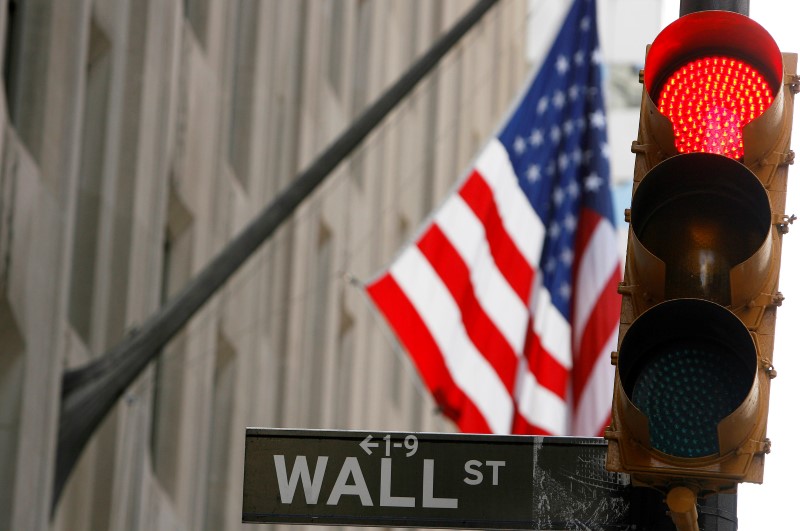By Geoffrey Smith
Investing.com -- U.S. stock markets opened with fresh losses on Wednesday, after the strongest weekly jobless claims numbers in over 50 years stoked fears of an accelerated tightening of monetary policy and prompted investors to take money off the table ahead of the long holiday weekend.
Initial jobless claims plummeted to 199,000 last week, their lowest since 1969, in what was interpreted as a sign of an increasingly strong labor market where companies are having to work hard to keep staff. Continuing jobless claims rose, however. Core durable goods orders also held up well in October, and September's numbers were revised moderately higher, although declines in the more volatile aerospace and defense segments meant that overall durable goods orders registered back-to-back monthly declines for the first time this year.
Meanwhile, core personal consumer expenditures - the Federal Reserve's preferred measure of inflation - rose 4.1% on the year in October, up from 3.7% in September and a fresh reminder of the increasing pressure on the Fed to reverse this year's spike in prices.
By 9:40 AM ET (1440 GMT), the Dow Jones Industrial Average was down 143 points, or 0.4%, at 35,670 points. The S&P 500 was down 0.6% and the Nasdaq Composite, which had been hit harder than the other two indices on Tuesday by rising capital market rates, underperformed again with a drop of 1.0%.
On a heavy morning for data, gross domestic product growth in the third quarter was also revised down marginally to an annualized rate of 2.1% from an initial estimate of 2.2%, with an eye-catching rise in wholesale inventories that testified to the mad scramble for goods ahead of the holiday season.
Even that scramble hasn't been enough to save some retailers, however. Gap (NYSE:GPS) and Nordstrom (NYSE:JWN) joined Urban Outfitters (NASDAQ:URBN), Best Buy (NYSE:BBY) and Abercrombie & Fitch (NYSE:ANF) in falling heavily after reporting a quarter characterized by higher costs, thinner margins and risks of product shortages in the next few weeks. Gap stock fell 20% and Nordstrom stock fell 23%. Software company Autodesk (NASDAQ:ADSK) got similarly harsh treatment, the stock falling 15% after it lowered its billings guidance.
There was better news manufacturers, such as Deere & Co (NYSE:DE), whose upbeat profit forecast for the financial year just started dispelled concerns about the impact of a lengthy strike that resulted in a substantial wage hike for its UAW workforce. Deere stock rose 5.2%.
And the gains were even sharper among PC makers, whose quarterly numbers showed them continuing to cash in on pandemic-driven demand trends. HP (NYSE:HPQ) stock rose 10.6% to a six-month high, while Dell (NYSE:DELL) stock rose 4.5%. Both companies issued guidance above Wall Street consensus.
